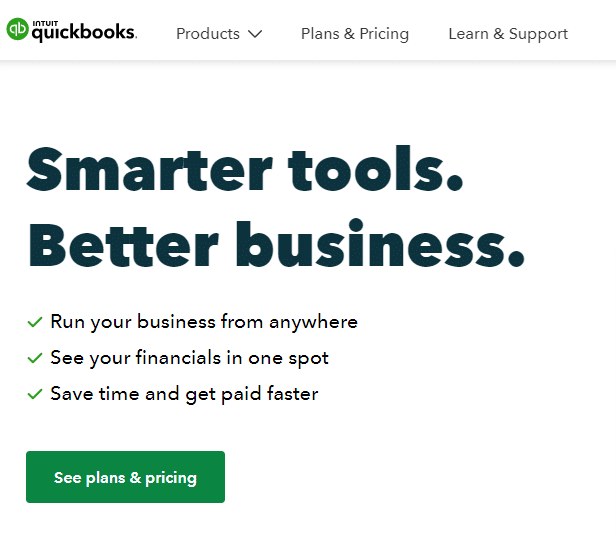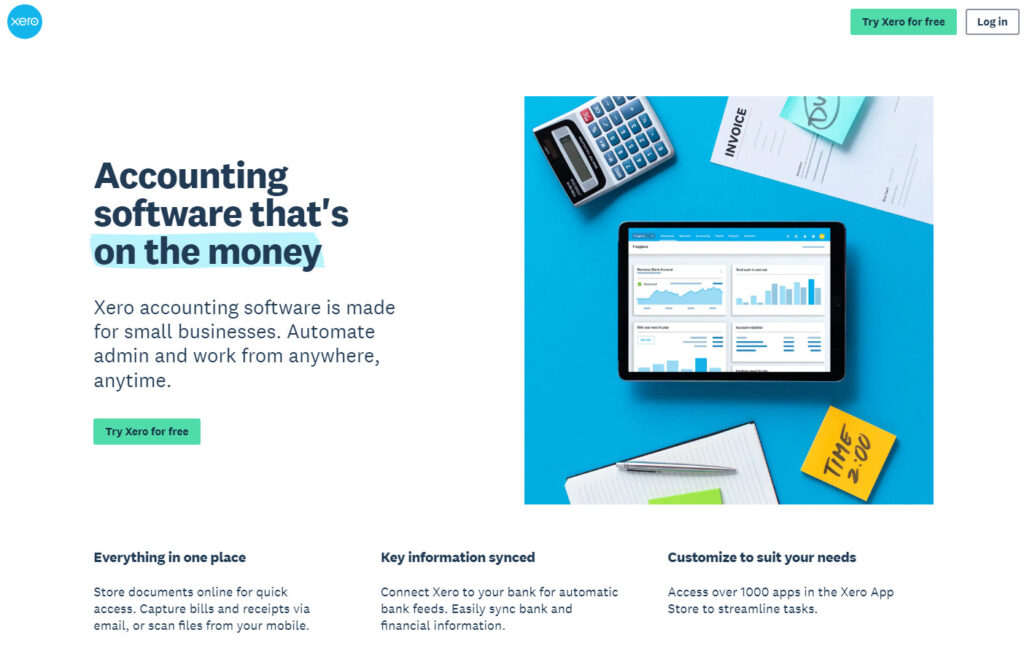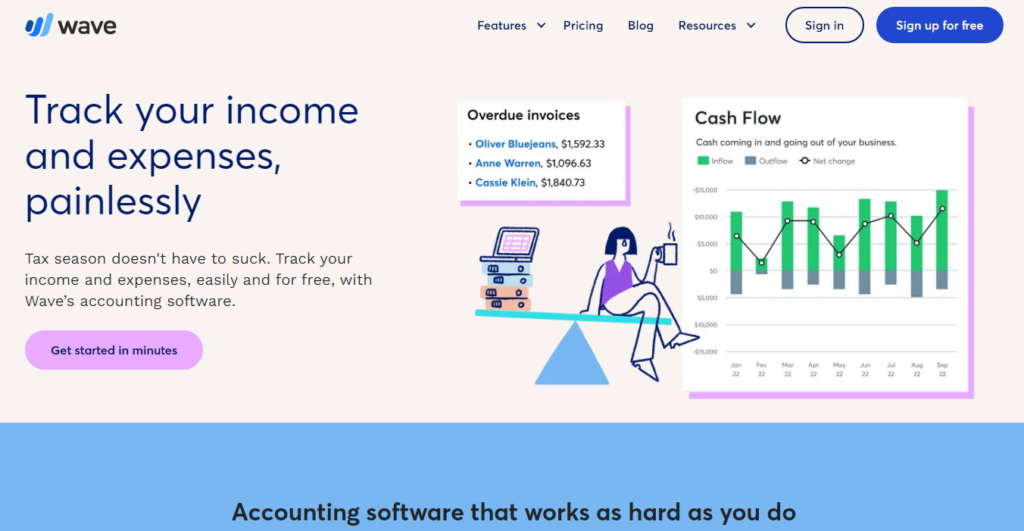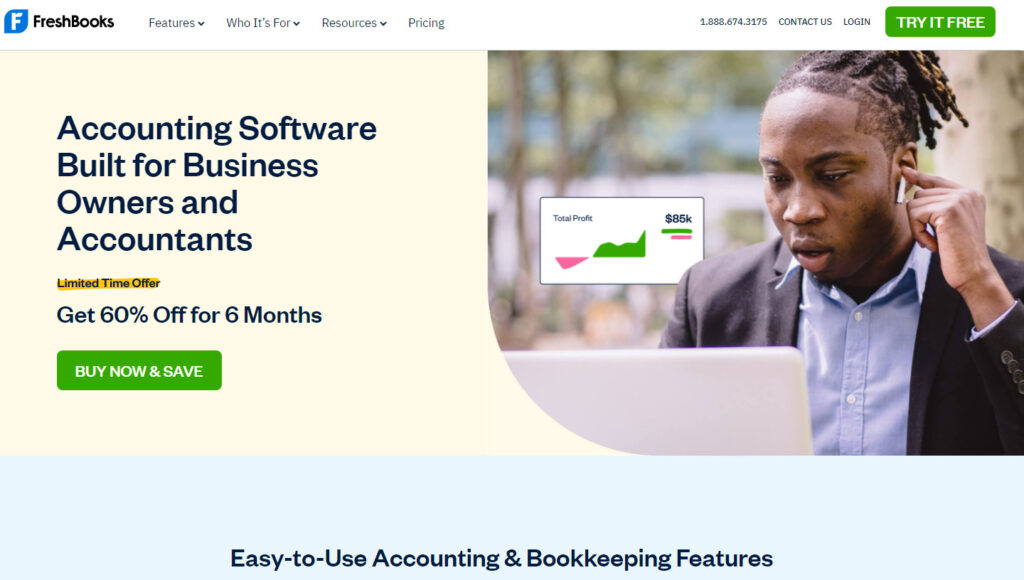If you’re a startup owner, you know how important it is to keep track of your finances and manage your accounting. But with so many accounting software options out there, how do you choose the best one for your needs?
Table of Contents

In this blog post, we’ll compare five of the best accounting software for startups, based on their features, pricing and ease of use. We’ll also give you some tips on how to choose the right accounting software for your startup.
What is Accounting Software for Startups?
Accounting software for startups is a type of software that helps you record and process your business transactions, such as income, expenses, invoices, taxes, payroll, and more. Accounting software for startups can help you:
- Save time and money by automating and streamlining your accounting tasks
- Improve your cash flow and profitability by tracking your income and expenses
- Comply with tax laws and regulations by generating accurate and timely reports
- Make better business decisions by analyzing your financial data and performance
Accounting software for startups can vary in terms of features, complexity, and cost. Some accounting software for startups are designed for specific industries or niches, while others are more general and flexible. Some accounting software for startups are cloud-based and accessible from any device, while others are desktop-based and require installation.
How to Choose the Best Accounting Software for Startups?
There is no one-size-fits-all solution when it comes to choosing the best accounting software for startups. The best accounting software for startups depends on your specific needs, preferences, budget, and goals. However, here are some factors that you should consider when comparing different accounting software for startups:
- Features: What features do you need from your accounting software? Do you need basic features like invoicing, expense tracking, and bank reconciliation? Or do you need more advanced features like inventory management, project accounting, or multi-currency support? Make a list of the features that are essential for your startup and look for accounting software that offers them.
- Pricing: How much are you willing to pay for your accounting software? Accounting software for startups can range from free to hundreds of dollars per month. The pricing usually depends on the number of users, transactions, features, and support options. Compare the pricing plans of different accounting software and see which one offers the best value for your money.
- Ease of use: How easy is it to use your accounting software? Accounting software for startups should be user-friendly and intuitive, especially if you’re not an accounting expert. Look for accounting software that has a simple and clear interface, a dashboard that shows your key financial metrics, and a mobile app that lets you access your data on the go.
QuickBooks Online

QuickBooks Online is a cloud-based accounting software that is widely popular among small businesses and startups. It offers a range of features that can help you manage your finances efficiently. With QuickBooks Online, you can track your expenses, create invoices, manage bills, and reconcile bank transactions. It also offers features such as project management, time tracking, and inventory management.
One of the best things about QuickBooks Online is its ease of use. The software is user-friendly and intuitive, making it easy for even non-accountants to use. Additionally, it offers a range of integrations with other software such as PayPal, Shopify, and TSheets, making it a versatile accounting solution for startups.
Pros:
User-friendly interface Accessible from any device with an internet connection Wide range of features Integrates with many third-party applications Automatic backup and data security 24/7 support
Cons:
Limited customizability Expensive for multiple users Reports can be difficult to customize
You can find our full article about Quickbooks online here
Xero

Xero is another popular cloud-based accounting software that is ideal for startups. It offers a range of features such as invoicing, expense tracking, bank reconciliation, and project management. It also offers a mobile app that allows you to manage your finances on the go.
One of the best things about Xero is its robust reporting capabilities. The software offers a range of reports that can help you gain insights into your financial performance. Additionally, it offers integrations with over 800 third-party apps, making it a versatile accounting solution for startups.
Pros:
User-friendly interface Integrates with many third-party applications Offers a mobile app for on-the-go access Affordable pricing plans Multi-currency support
Cons:
Limited customer support Some features require add-ons Limited payroll options
Wave

Wave is a free cloud-based accounting software that is ideal for startups on a budget. It offers a range of features such as invoicing, expense tracking, and receipt scanning. Additionally, it offers a range of integrations with third-party apps such as PayPal and Etsy.
One of the best things about Wave is its affordability. The software is free to use, with no hidden fees or charges. Additionally, it offers a range of premium features such as payroll and credit card processing, which are available for a small fee.
Pros:
Free accounting software User-friendly interface Offers a mobile app for on-the-go access
Cons:
Limited features compared to paid software Limited customer support Ads displayed in the interface
FreshBooks

FreshBooks is a cloud-based accounting software that is ideal for service-based startups. It offers a range of features such as time tracking, invoicing, and project management. Additionally, it offers integrations with third-party apps such as G Suite and PayPal.
One of the best things about FreshBooks is its customer support. The software offers 24/7 customer support via phone, email, and live chat, making it easy to get help when you need it. Additionally, it offers a range of educational resources such as webinars and guides, which can help you get the most out of the software.
Pros:
User-friendly interface Integrates with many third-party applications Offers a mobile app for on-the-go access Offers a variety of features such as invoicing, expense tracking, and time tracking Good customer support Allows for team collaboration
Cons:
Expensive pricing plans for multiple users Limited customizability Limited payroll options No inventory management feature
Zoho Books

Zoho Books is a cloud-based accounting software that is ideal for startups that need advanced accounting features. It offers a range of features such as invoicing, expense tracking, bank reconciliation, and project management. Additionally, it offers integrations with over 40 third-party apps, making it a versatile accounting solution for startups.
One of the best things about Zoho Books is its advanced accounting features. The software offers features such as double-entry accounting, which can help you ensure the accuracy of your financial data. Additionally, it offers a range of customization and automation features that can help you streamline your accounting processes.
Pros:
Affordable pricing plans Offer a wide range of features Multi-currency support Integrates with other Zoho applications
Cons:
Limited payroll options Some features may require add-ons Limited customer support
Choosing the right accounting software for your startup is crucial for the success of your business. By using one of the accounting software listed above, you can easily manage your financial data, keep track of expenses, and create professional invoices. Each software has its unique features, pros, and cons, so it’s important to consider your business needs and budget before making a decision.
Whether you choose QuickBooks Online, Xero, Zoho Books, Wave, or FreshBooks, you’ll be able to streamline your accounting processes and make more informed decisions about your finances. From user-friendly interfaces to mobile apps and integrations with other software, these accounting solutions have something for everyone.
We hope this article has helped you to understand the benefits and drawbacks of each software, and that you’re now better equipped to make an informed decision about which accounting software to choose for your startup. Remember to consider the pros and cons carefully, and choose the software that best fits your unique business needs.
Why do startups need accounting software?
Accounting software is essential for startups because it helps them manage their finances effectively. It allows them to track their expenses, generate invoices, process payments, and manage payroll. By using accounting software, startups can stay on top of their finances and make informed decisions about their business operations.
What are some of the best accounting software options for startups?
There are many accounting software options available for startups, but some of the most popular ones include QuickBooks, Xero, FreshBooks, and Wave. These software solutions are designed specifically for small businesses and offer a range of features to help startups manage their finances efficiently.
What should startups look for when choosing accounting software?
Startups should look for accounting software that is easy to use, affordable, and scalable. It should also offer features such as invoicing, expense tracking, and financial reporting. Additionally, startups should consider whether the software integrates with other business tools they use, such as CRM or project management software.
How much does accounting software for startups cost?
The cost of accounting software for startups varies depending on the features and level of service provided. Some software solutions are available for free, while others can cost several hundred dollars per month. Startups should carefully consider their budget and needs when selecting an accounting software solution.
Can startups use accounting software for tax purposes?
Yes, accounting software can be used for tax purposes. Many accounting software solutions offer features that allow businesses to track tax obligations, generate tax forms, and calculate tax payments. However, startups should consult with a tax professional to ensure they are meeting all of their tax obligations.
